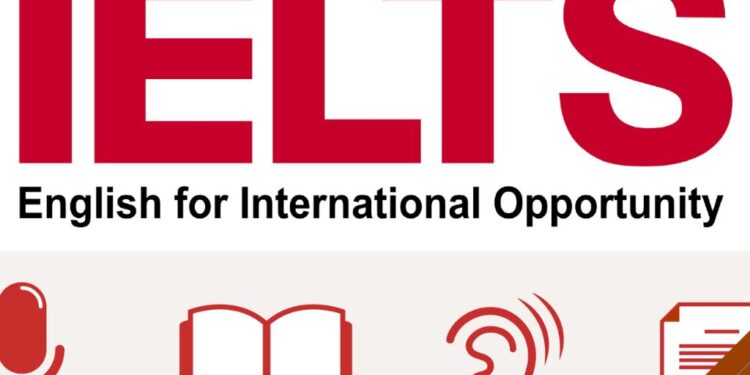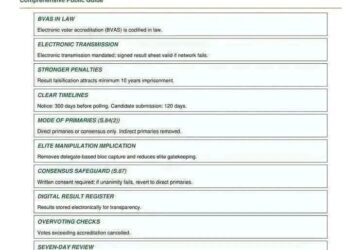If you’re planning to study, work, or migrate to English-speaking countries like the United Kingdom, Canada, Australia, or the United States, then writing the IELTS exam in Nigeria may be a crucial step.
The International English Language Testing System (IELTS) is one of the most recognized English proficiency exams in the world. It’s accepted by over 11,000 institutions globally, and for many international scholarships, visa applications, and university admissions, it is a required credential.
In this article, Edutimes Africa breaks down everything you need to know about registering for IELTS in Nigeria: the cost, structure, test types, test centres, and expert tips to pass on your first try.
✅ What Is the IELTS Exam?
IELTS (International English Language Testing System) is a globally recognized English proficiency test jointly owned by the British Council, IDP: IELTS Australia, and Cambridge University Press & Assessment. It evaluates the English language skills of non-native speakers who wish to study, migrate, or work in English-speaking countries.
The IELTS exam is designed to assess four core language skills:
Listening
Reading
Writing
Speaking
📝 Types of IELTS Tests Offered in Nigeria
There are two major types of IELTS exams:
1. IELTS Academic – Designed for individuals applying for higher education or professional registration. It’s commonly required by universities and some professional bodies like medical and engineering councils.
2. IELTS General Training – Suitable for those migrating to English-speaking countries (e.g., UK, Canada, Australia) for work, secondary education, or training programs. It focuses on basic communication in workplace and social environments.
💰 How Much is IELTS in Nigeria (2025)?
As of March 2025, the cost of IELTS in Nigeria is as follows:
IELTS on Computer (Academic/General): ₦266,000
IELTS on Paper (Academic/General): ₦256,500
Prices are subject to updates by the British Council, so always confirm on the official website before booking.
📍 Where Are IELTS Test Centres in Nigeria?
There are several IELTS test centres across Nigeria, located in key cities such as:
Lagos
Abuja
Port Harcourt
Ibadan
Kano
Enugu
Benin City
Akure
Abeokuta
These centres offer both computer-delivered and paper-based test options. You can choose the one closest to you during registration.
🖥️ How to Register for IELTS in Nigeria (Online Process)
Follow these steps to register for your IELTS exam in Nigeria:
1. Visit the British Council Nigeria IELTS page
2. Click on “Take an Exam” → “Take IELTS with the British Council”
3. Choose your preferred test type (Academic or General)
4. Select a test date and location
5. Create an account or log in
6. Upload your identification document (usually international passport or national ID)
7. Proceed to make payment online
8. Receive confirmation and prepare for your exam day
📚 IELTS Exam Structure: Format & Duration
Here’s what to expect in each section:
1. Listening (30 minutes)
You’ll listen to four recordings and answer 40 questions to test your ability to understand conversations, monologues, and instructions.
2. Reading (60 minutes)
You’ll answer questions based on three reading passages. For Academic tests, passages are from journals, books, or newspapers; for General Training, they reflect everyday workplace and social contexts.
3. Writing (60 minutes)
Academic: Describe a chart/graph + write an essay
General Training: Write a formal/informal letter + write an essay
4. Speaking (11–14 minutes)
A face-to-face interview testing your fluency, vocabulary, pronunciation, and coherence. Includes:
Personal introduction
Short speech on a topic
Discussion with the examiner
🎯 Minimum IELTS Score Requirement
IELTS scores range from 1 to 9, and most universities or organizations require a minimum band score of 6.0 to 7.5.
However, specific requirements may vary:
Undergraduate programs: Band 6.0 and above
Postgraduate/Scholarships: Band 6.5–7.5 (often with no section below 6.0)
✅ Tips to Pass IELTS Exam in Nigeria
1. Start Early with Preparation Materials – Use Cambridge IELTS practice books, YouTube tutorials, or enroll in a prep course.
2. Take Mock Tests – Familiarize yourself with the format by practicing under timed conditions.
3. Improve Listening Skills – Listen to podcasts, BBC news, or TED Talks regularly.
4. Enhance Speaking Fluency – Practice with friends or join an IELTS speaking club.
5. Understand Common Writing Tasks – Review model essays and build your writing structure.
6. Use IELTS Preparation Apps – Apps like Magoosh or IELTS Prep App can help.
🌍 Are Nigerians Exempted from IELTS?
For the UK, Nigerians still need to present IELTS scores, unless applying for programs that waive this requirement.
However, for countries like the United States, Canada, and Australia, most universities accept proof of prior education in English in place of IELTS. Always verify with your intended school.
🆚 Alternatives to IELTS
If IELTS isn’t a fit for you, consider:
TOEFL (Test of English as a Foreign Language)
PTE (Pearson Test of English)
Duolingo English Test
Cambridge English Test
CAEL or CELPIP (for Canadian immigration)
🎓 Scholarship Opportunities That May Waive IELTS
Many scholarships in 2025 allow Nigerians to apply without IELTS, such as:
DAAD Scholarships (Germany)
McCall MacBain Scholarship (Canada)
Commonwealth Scholarships (UK)
Erasmus Mundus (Europe)
Check each opportunity’s language requirement carefully.
📌 Final Thoughts
Whether you’re applying for study abroad scholarships, migrating for work, or looking to advance your professional journey, the IELTS exam is your gateway to global opportunities. With proper preparation and awareness, you can excel and secure your dream spot.
📲 Stay Updated on IELTS and Scholarships
Follow Edutimes Africa for regular updates on:
IELTS prep resources
Upcoming test dates
Fully funded scholarships
Study abroad tips



















































































 EduTimes Africa, a product of Education Times Africa, is a magazine publication that aims to lend its support to close the yawning gap in Africa's educational development.
EduTimes Africa, a product of Education Times Africa, is a magazine publication that aims to lend its support to close the yawning gap in Africa's educational development.